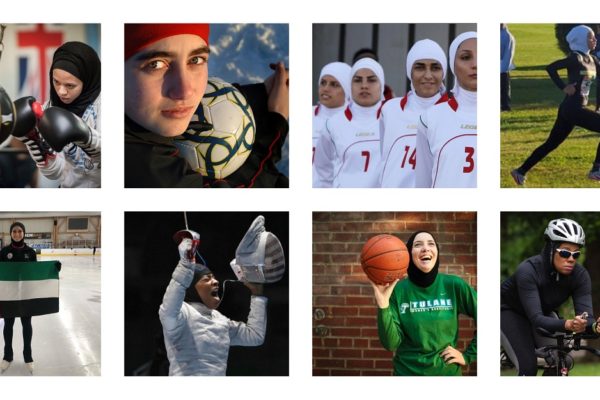“Don’t be afraid to wear your hijab if you’re struggling with it, don’t open it up don’t loosen it up, put it tighter because in these times, we need it and keep your salah close keep it close.”
“Don’t be afraid to wear your hijab if you’re struggling with it, don’t open it up don’t loosen it up, put it tighter because in these times, we need it and keep your salah close keep it close.”
Some documentaries capture a snapshot of a person’s life, and some capture world-changing events. Life Without Basketball manages to do both subtly and intimately.
Life Without Basketball, directed by Tim O’Donnell and Jon Mercer, tells the story of Bilqis Abdul-Qaadir, a young successful Muslim graduate from Springfield, Massachusetts, who is excited to transition from college basketball to playing professional international basketball. Her dreams are shattered when the International Basketball Federation (FIBA), based in Switzerland, prevents Bilqis from playing in international teams while she wears her hijab.
Bilqis Abdul-Qaadir says in the film:
My agent calls me and she’s like hey Bilqis I think we may have a little problem, FIBA has a rule that bans certain head pieces or head gear you can’t wear anything larger than a headband and so I’m like it’s no problem let’s just tell them that I’m Muslim I choose to wear it, we can I can sign a waiver. I thought it was that simple, it turned out that it wasn’t.”
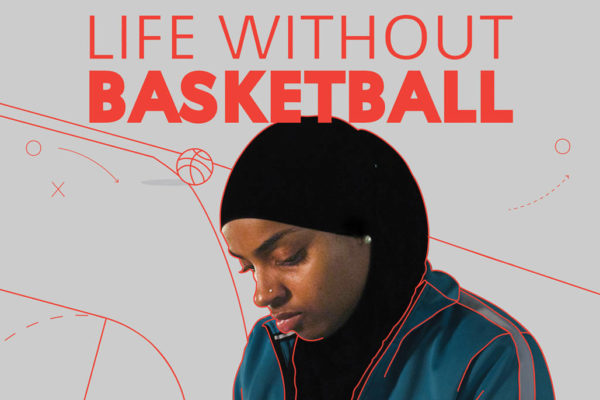
Interestingly, not only did the National Collegiate Athletic Association (NCAA) from the US permit Bilqis from playing with her hijab on, but she managed to obtain a scholarship and financial support throughout her graduate studies in the US, a marked difference between the European based international organisation and the US organisation managing sports.
Bilqis was at a difficult crossroads. She had worked hard from thirteen to get into college using her basketball skills. Now, she was close to beginning a successful professional career in international basketball. Bilqis describes how much the sport meant to her as a young child. Her focus was to be the best basketball player she could become:
I remember I used to sleep with the basketball because I would lay in my bed and I would practice my form laying on my back and it just it became a part of me … I ate it, I breathe it, I slept it.”
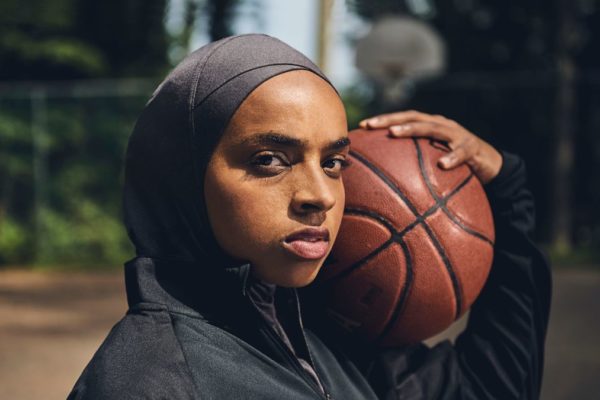
Bilqis had worked hard in college, keeping up with her studies and ensuring she outperformed other players. She was winning recognition of the field and points for her team with her outstanding performance on the court. In 2009 Bilqis was even invited to the White House by President Obama for Eid-Al-Fitr dinner. All the hard work, training, discipline, and faith in Allah and her religion would be put to the harshest of tests after graduation.
Bilqis Abdul-Qaadir says:
When the basketball was taken away I was just a Muslim and that’s when things start to set in. Was I doing that part of it right so I remember at this crossroad when I could have easily taken off my hijab to go play, I had those thoughts and I remember not really sharing that with anybody.”
The co-directors Timothy O’Donnell and Jon Mercer take their time to explore Bilqis’s powerful and transformative journey. The journey is as transformative for the viewer as for Bilqis dealing with the injustice of losing her opportunity to play basketball.
Through the slow but painful journey, the viewer is left to wonder, what would I be willing to sacrifice for my faith? If Allah wanted to test us if we were placed in a position where we either had to choose our faith and closeness to Allah or the opportunity to be successful in dunya, what would we do, and which path would we take?
Jon Mercer spent around five years producing this documentary, and in that time the viewer watches Bilqis and her character grow and mature into a strong and independent role model for other young Muslim girls who wish to make it a success on the basketball court. Jon Mercer explains:
It sort of explores her identity and challenges one of encountering it to trying to move past it and then the decision of once it was overturned whether she would return to the court or not.”
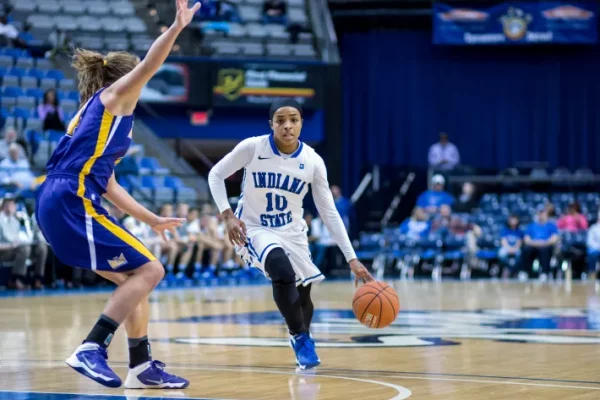
I don’t want to ruin the ending of the documentary. I wish as many people could watch it because the film is more than a documentary. It is a powerful exploration of identity, faith, and values. Bilqis drives this message home in one of many speeches she gave after making the film:
Don’t be afraid to wear your hijab if you’re struggling with it, don’t open it up don’t loosen it up, put it tighter because in these times, we need it and keep your salah close keep it close.”
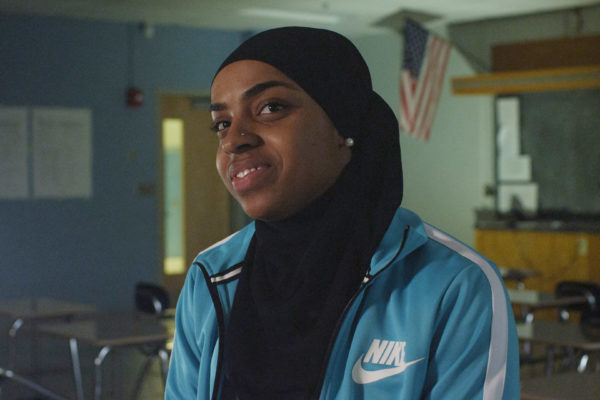
Muslim women living in the West and resisting the daily attack and challenges to wearing hijab will identify a lot with the story and journey that Bilqis has gone through. It is tragic that in the 21st century, women are still being denied their basic rights of participation in sports because of the religion they practice and trying hard to stay devoted to their faith.
Strikingly the lessons Bilqis has learned from playing basketball at college-level have assisted her in better practising her faith as a Muslim, especially living in a world where it is not always easy to hold on to the hijab and other Islamic traditions which are a strength and guidance for the adherence that follow them. Bilqis Abdul-Qaadir says:
I remember when you’re an athlete you have to step outside of your comfort zone every second … the discipline, the focus, the effort, the leadership is literally what we should have as a foundation as a Muslim and I think that’s one thing that I still take from basketball that I appreciate that basketball gave me.”
Important to also note that Bilqis was supported by loving and supportive parents throughout her journey. It is clear that she draws a lot of strength from her parents and family members, and this is an important side lesson for the viewers, that parents have an obligation to support their children in their careers, but to also keep them grounded and connected to their faith, so much so that if they faith a choice like Bilqis, they end up making the right choice.
You can watch Life Without Basketball on USHUB.
Quotes for Bilqis Abdul-Qaadir were taken from here.
Quotes for Jon Mercer were taken from here.
